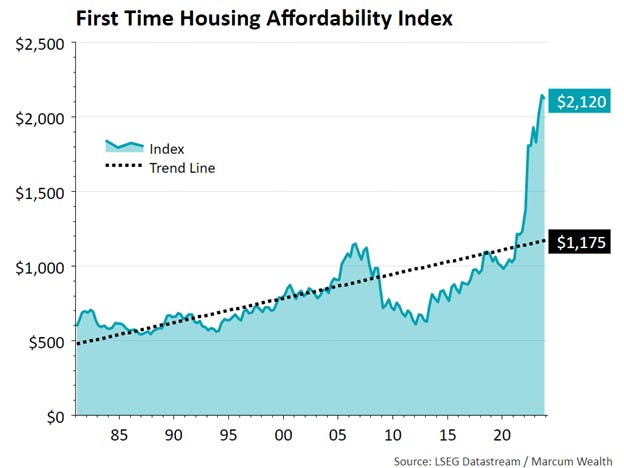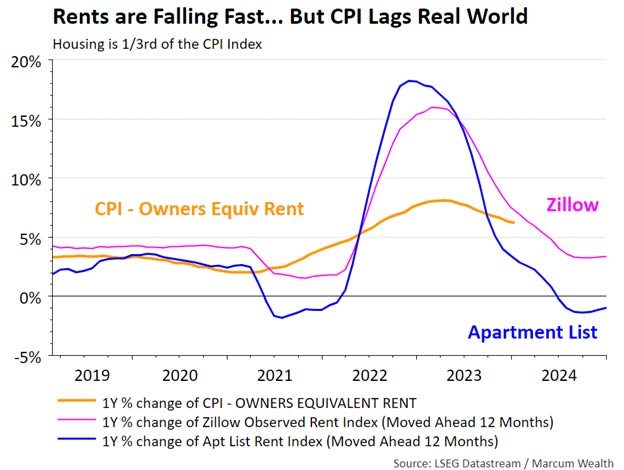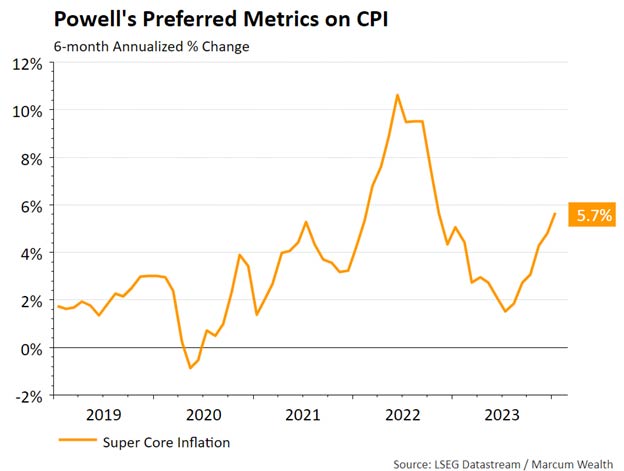
Which came first: the good economy or the confidence? Feeling good about our prospects gets us to spend money. But for us to spend, we need confidence in the outlook.
How we feel and how we act often contradict each other.
Consumer confidence surveys have been at levels consistent with a poor economy. Some economists wonder why this is the case, considering we did not have a recession. Unemployment is near a 60-year low. People have been spending at an above average pace the last few years, despite feeling the economy is bad.
The problem is inflation. And inflation makes us feel worse. We see that visible hit to purchasing power at the store (or online) each day.
Prices hit the highest level of inflation in 40 years. In turn, the Fed raised interest rates at the fastest rate since the 1970s.
Harvard economist Judd Cramer says today’s inflation data does not capture reality for individuals. This explains why people do not feel as good.
In a recent paper, he cites how the consumer price index was calculated in the 1980s and how it differs from today. It dives into housing costs and how, prior to 1983, mortgage rates were included in the price index. Today, we use a rent calculation for CPI that does not factor in mortgage rates. After going from 3% to 7% mortgage rates, this is a significant cost to homebuyers. The same goes for financing a car or larger purchase.
The chart below demonstrates how fast the mortgage payment has risen for first time homebuyers, nearly $1,000 above the prior 40-year trend.

Alternative inflation data provided a peak into the future in the last few years. Before official inflation data went up, wages and rent started moving higher. On the way back down from late 2022, both declined in advance of the official measures.
Lately, the annual change in rental rates has fallen to the pre-2020 average. Apartment List shows a decline over the past year. This leads the official data measures. Unfortunately, rental data misses higher mortgage costs that impact new homebuyers.

On the other hand, the January inflation data challenged the downward price trend. The Super Core inflation focuses on services, a key metric for the Fed and Chairman Powell. It had been falling but is back up to nearly a 6% rate over the past 6 months.

There is no doubt that inflation has been the theme of this cycle, and the last few years have included both a huge rise and decline in inflation. It took 18 months, but the fall from 9% to 3% inflation was relatively smooth. Some economists worry that the last mile of inflation, falling from 3% to 2% will not be as easy.
There is also a possibility that the target inflation rate will be moved up to 3%. We have all learned in markets that the rules by policymakers can change in the middle of the game. During his testimony in front of Congress this past week, Chairman Powell said the committee “is not looking for inflation to go all the way down to 2%, but we do need more evidence.”
As it stands today, people do not feel great about the economy for specific reasons. Inflation is still relatively high, and interest rates to finance big purchases remain above average.
The Fed has a challenge ahead. Interest rate cuts are expected by June, but the data needs to cooperate for the cuts to happen. This might alleviate pressure on consumers and hopefully change the feelings on their confidence. Still, the hot economy could push rate cuts even further away.
Important Disclosure Information
Marcum Wealth, LLC (“Marcum”) is an investment adviser registered with the United States Securities and Exchange Commission. Registration as an investment adviser does not imply a specific level of skill or training. A copy of Marcum’s current written Disclosure Brochure discussing its advisory services, fees, and material conflicts of interest is available upon request.
Past performance does not guarantee future results. Different types of investments involve varying degrees of risk, and there can be no assurance that the future performance of any specific investment, investment strategy, or product (including the investments and/or investment strategies recommended or undertaken by Marcum), or any non-investment related content, made reference to directly or indirectly in this communication, will be profitable, equal any corresponding historical performance level(s), be suitable for your portfolio or individual situation, or prove successful. Certain strategies and vehicles referenced in this communication, such as private investments, Opportunity Zones, and ESG investing, may present increased or novel risks, including potentially higher management fees, reduced liquidity, shorter performance histories, or increased legal or regulatory exposure, compared to more traditional publicly traded securities and investment strategies. All investors should consider these potential risks in light of their individual circumstances, objectives, and risk tolerance. Due to various factors, including changing market conditions and/or applicable laws, the content may no longer be reflective of current opinions or positions. Moreover, you should not assume that any discussion or information contained in this commentary serves as the receipt of, or as a substitute for, personalized investment advice from Marcum. The asset allocations reflected in this communication are targets only. Actual allocations can and often will deviate from these targets, including in instances of volatile markets, large deposits or withdrawals, or during account rebalancing.
Historical performance results for investment indices, benchmarks, and/or categories have been provided for general informational/comparison purposes only, and generally do not reflect the deduction of transaction and/or custodial charges, the deduction of an investment management fee, nor the impact of taxes, the incurrence of which would have the effect of decreasing historical performance results. It should not be assumed that your Marcum account holdings correspond directly to any comparative indices or categories. Please Also Note: (1) performance results do not reflect the impact of taxes; (2) comparative benchmarks/indices may be more or less volatile than your Marcum accounts; and (3) a description of each comparative benchmark/index is available upon request.
Not all services described herein will be necessary or appropriate for all clients. The scope of the services to be provided depends upon the needs of the client and the terms of the engagement. The potential value and benefit of the adviser’s services will vary based upon a variety of factors, such as the client’s investment, tax, and financial circumstances, and overall objectives. Neither personalized services nor financial or professional resources or processes should be construed as a guarantee of a particular outcome. All investing comes with risk, including risk of loss.
If you are a Marcum client, please remember that it remains your responsibility to advise Marcum, in writing, if there are any changes in your personal/financial situation or investment objectives for the purpose of reviewing/evaluating/revising our previous recommendations and/or services, or if you would like to impose, add, or to modify any reasonable restrictions to our investment advisory services. Unless, and until, you notify/advise us, in writing, to the contrary, we shall continue to provide services as we do currently. Marcum is neither a law firm, nor a certified public accounting firm, and no portion of the commentary content should be construed as legal or accounting advice. Tax and accounting services provided by Marcum, LLP. Insurance services provided by Marcum Insurance Services, LLC.
